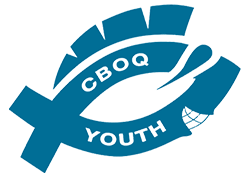In youth ministry, many of us tend to focus on the content of teaching. Looking at a year-long calendar, many youth leaders try to pack in as much content and topics they can think of. Is that the best approach?
For me (Alvin), I wonder if there is a significant shift in our youth ministry programming. Since the birth of the church, one of the primary drives was to share the person and message of Jesus because that information was not accessible. Even with the age of the printing press, information, to a large degree, was delivered through specific channels. The church was one of those channels.
However, with the advent of the information/digital age, information is essentially accessible to anyone at anytime. The church is no longer one of the primary gatekeepers of information. A student can essentially “Google” anything.
While Google makes information accessible, what it cannot do is help students process and discern. SEOs and other algorithms may make certain sources seem more credible. However, a student still needs the wisdom and discernment of a community around them to make sense of all this information.
I wonder whether the focus of youth ministry programming should be less about the actual content and more about the discernment process. I’m not suggesting content isn’t important. The person and message of Jesus is still central to who we are, and it’s the most worthwhile message to share. As youth leaders, we sometimes assume we must teach it, and other facets of truth, in a specific way. We tend to put so much energy into the final “product” of program, thinking that we’re the conduit for information.
This is part of the beauty of constructivist/student-centred learning. A key premise is recognizing that students have a lot to contribute to that discovery of truth, especially when they have accessibility to virtually all information available. Time and time again, research has shown that two key factors in faith formation/sustainability are relationships strengthened (including intergenerational friendships) and space to question/doubt/process issues.
The next time you have a Bible study, rather than leading through a specific series of questions, invite students to bring their insights and sources to the table. One key contribution you have as the youth leader is to help them decipher/process/discern where the content is coming from, and to understand how to engage Scripture in the discernment process. At times, this will be messier and it may not end where you anticipated it landing. But by entering this process, you help students better understand how to engage with God’s word and with the other sources they encounter.
Over the years, I’ve learned it’s not about how much you know or learn in a youth ministry. There are key understanding that are vital in one’s faith formation. But I’ve recognized it’s better to establish an environment where they can wrestle with faith and other issues, and to strengthen their faith formation with the tools and community to support them.




Leave A Comment